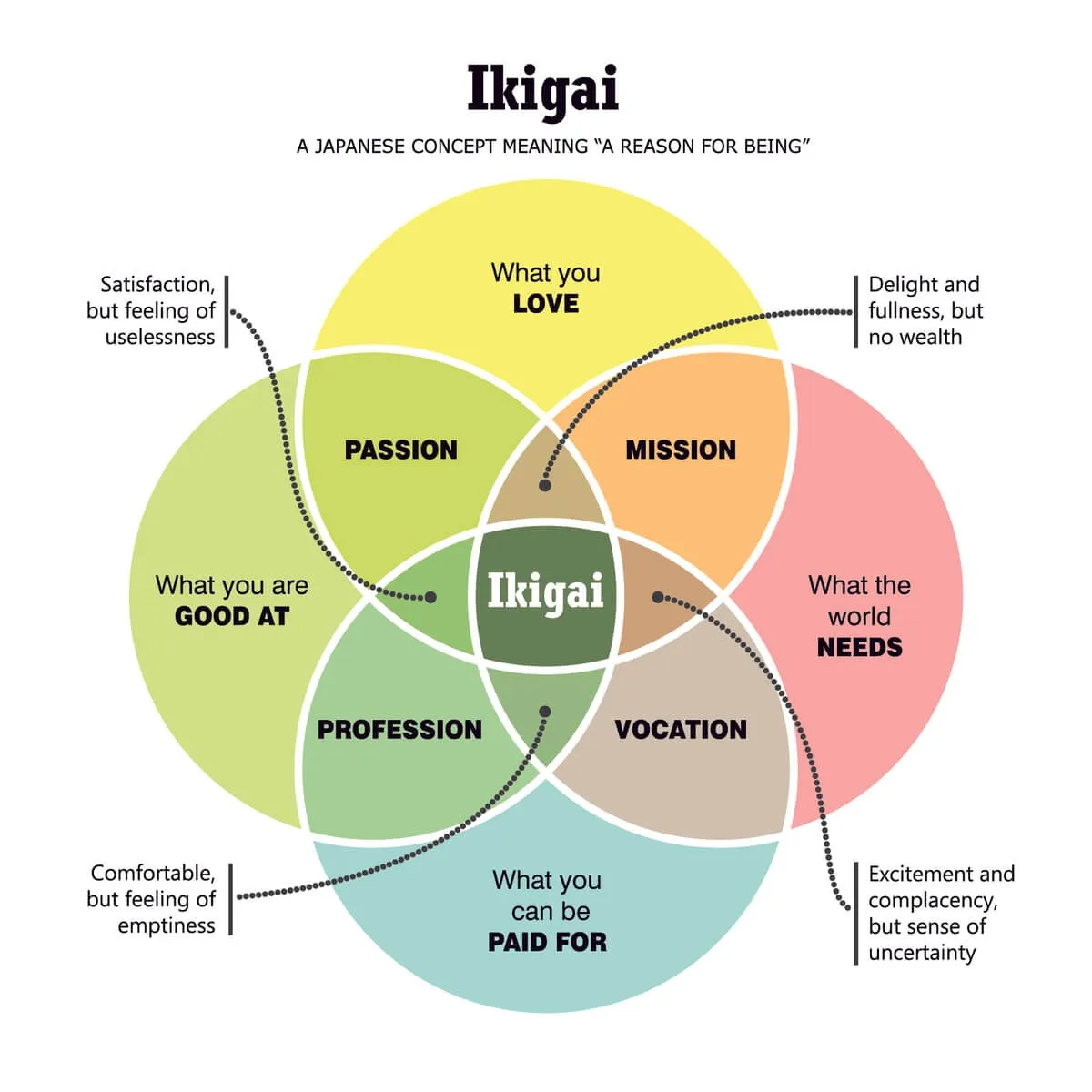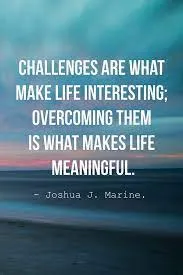I have written a post about the Japanese concept of ikigai a few days ago. This was what I wrote about Ikigai in my previous post.
Ikigai is a Japanese term that means in English "cause for being" or to put it simply "the reason why you and I get out of bed every morning". This Japanese philosophy refers to having a direction or purpose in life that gives a person a sense of fulfillment and motivates them to conduct acts that provide them satisfaction and meaning.
In today's post, I will share some of my personal experiences in trying to put the principles into practice.
How Ikigai Has Benefitted Me
Let us first review the 4 fundamental questions relating to ikigai.
- What do you love doing?
- What are you good at?
- What does the world need?
- What can you be paid for?
The four questions above provide a framework to reflect closely and to be more aware of myself, my strengths, weakness, likes, dislikes and my personality. To a great extent, this has made me more comfortable in my own skin. I have learned to accept myself and both my strengths and weaknesses. I come to the conclusion that I should love myself more and treat myself with more kindness.
In addition, it also forces me to examine the outside world and my environment. This helps me to align myself with my environment. From this analysis, my ikigai at this point in time is writing and traveling.
By focusing on what I am good at and what I love, I am leveraging on my strengths, which in this case is my writing. I tried to write regularly and post on Hive around 5 times a week. I enjoyed the writing process and each time I finished writing a post I am elated. I feel a sense of progress as well as a sense of accomplishment. Now that I am retired, each time I write, I feel that I am doing something worthwhile.
Any upvotes and comments on my posts are a bonus. The upvotes and comments also reinforced that what I write is of value to others. By writing on Hive, I am also able to earn some income. Since I already have a pension, whatever I earned from Hive is both an investment and also extra pocket money. I truly believe in Hive and the value of Hive will rise in the future and it forms part of my investment.
I also consider traveling as my ikigai. I love and enjoy traveling just like a lot of other people. My wife and I usually traveled on our own as opposed to joining tours. I would say that I am fairly skillful in doing the necessary research, planning, budgeting and finding my way around. By writing about my travels, I am able to share my experiences with the rest of the world. Of course, I am not able to earn a living from writing about my travels. But I am happy that whatever that I can earn writing about my past travels can be used to partially finance my future travels. That for me is good enough.
To a certain extend ikigai is a theoretical concept and It is not easy to find activities that fulfill all four criteria. If you are not able to find an activity that meets all four criteria, does it mean that you will not be happy? I approach ikigai from the point of view of a menu rather than a prescription. Just like when you order food from a menu at a restaurant, you order what you like and in the quantity that you desire. This gives me the freedom to choose which aspects of ikigai are compatible with me instead of religiously following it like a prescription. Therefore I still considered traveling as my ikigai and I derived much enjoyment and satisfaction from it, although the fourth question "What can you be paid for" is not fully addressed. Another example is a grandmother who loves to spend time and babysit her grandchildren. To her, it is her ikigai although she may not derive any income from it.
My Challenges With Ikigai
My first challenge is not only with ikigai but also other concepts as well. Having the knowledge to doing something is not the same thing as doing it. Having researched ikigai, I have the necessary knowledge to practice ikigai. In many instances, I do not put what I know into practice. Knowing what to do is very different from actually doing it.
My second challenge comes from my own insecurities and lack of confidence. The education system back in the 1970s emphasized on correcting student's mistakes. My essays will be full of red marks made by my English teacher correcting all my mistakes. In particular, when I was in Primary 5, I answered "Under the table, I found a snake." My answer "I found a snake" was marked wrong by the teacher as she explained that it is not common for snakes to be found under a table. The answer should be more common items like books, pencils or bags. For years I had read about snakes being found in the oddest places like the toilet bowl, ATMs, beds, etc. As such, I did not even know that I can write well until I entered University. In my second year at University, I won an essay writing competition and was given a Japan Air Lines Scholarship to attend a Summer Course at Toyko. Only then, I realized that I have a talent for writing.
Due to my own insecurities, I often wonder whether what I write will interest others. Would they even bother to take the time to read what I have written? Only by having confidence in myself do I eventually realize that what I write resonates with others and in many ways touches them as well.
Conclusion
Ikigai is basically just a framework and is not set in stone. As time and circumstances change, our ikigai will change. We need to adopt a more flexible approach and select aspects of ikigai which are useful to us.


